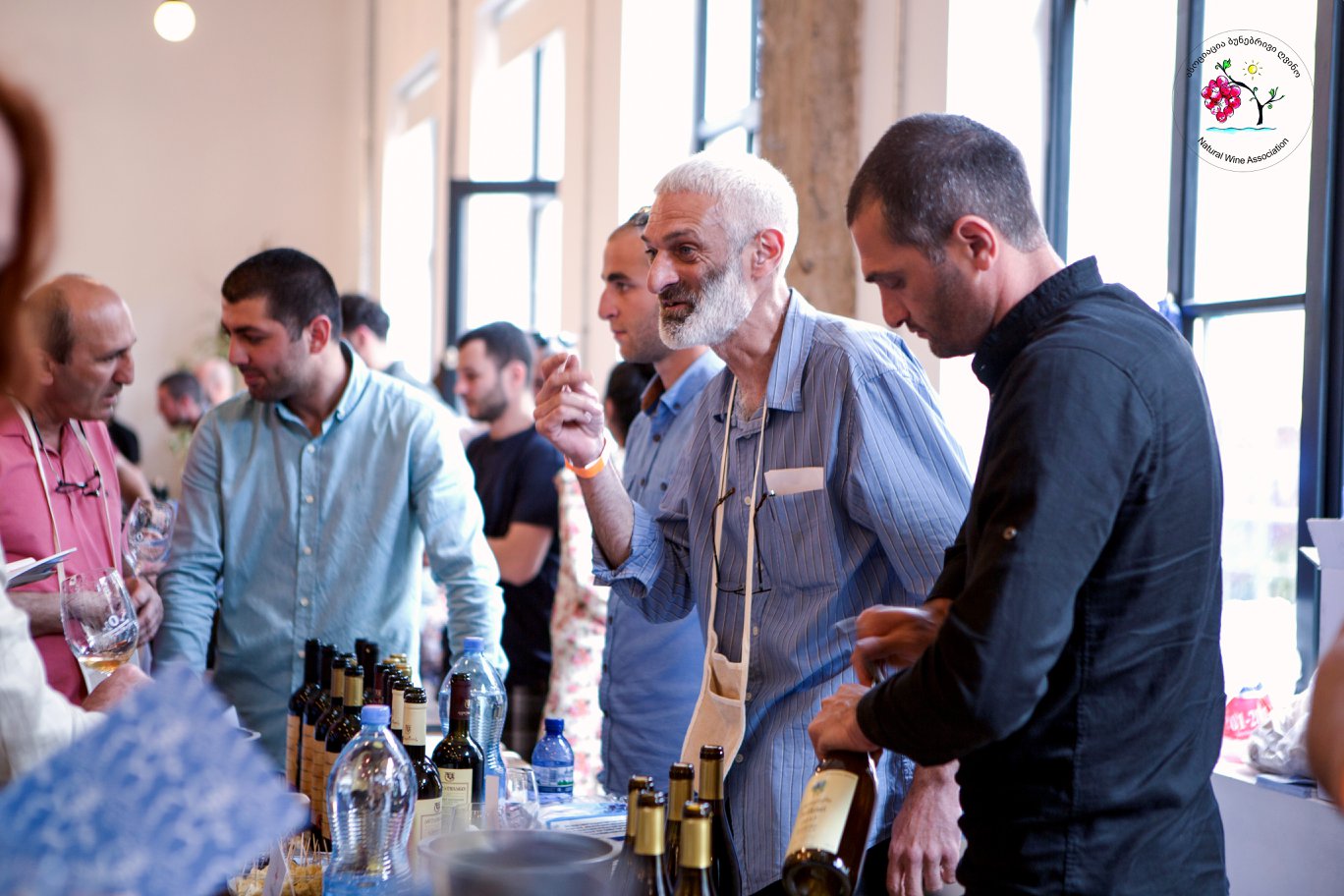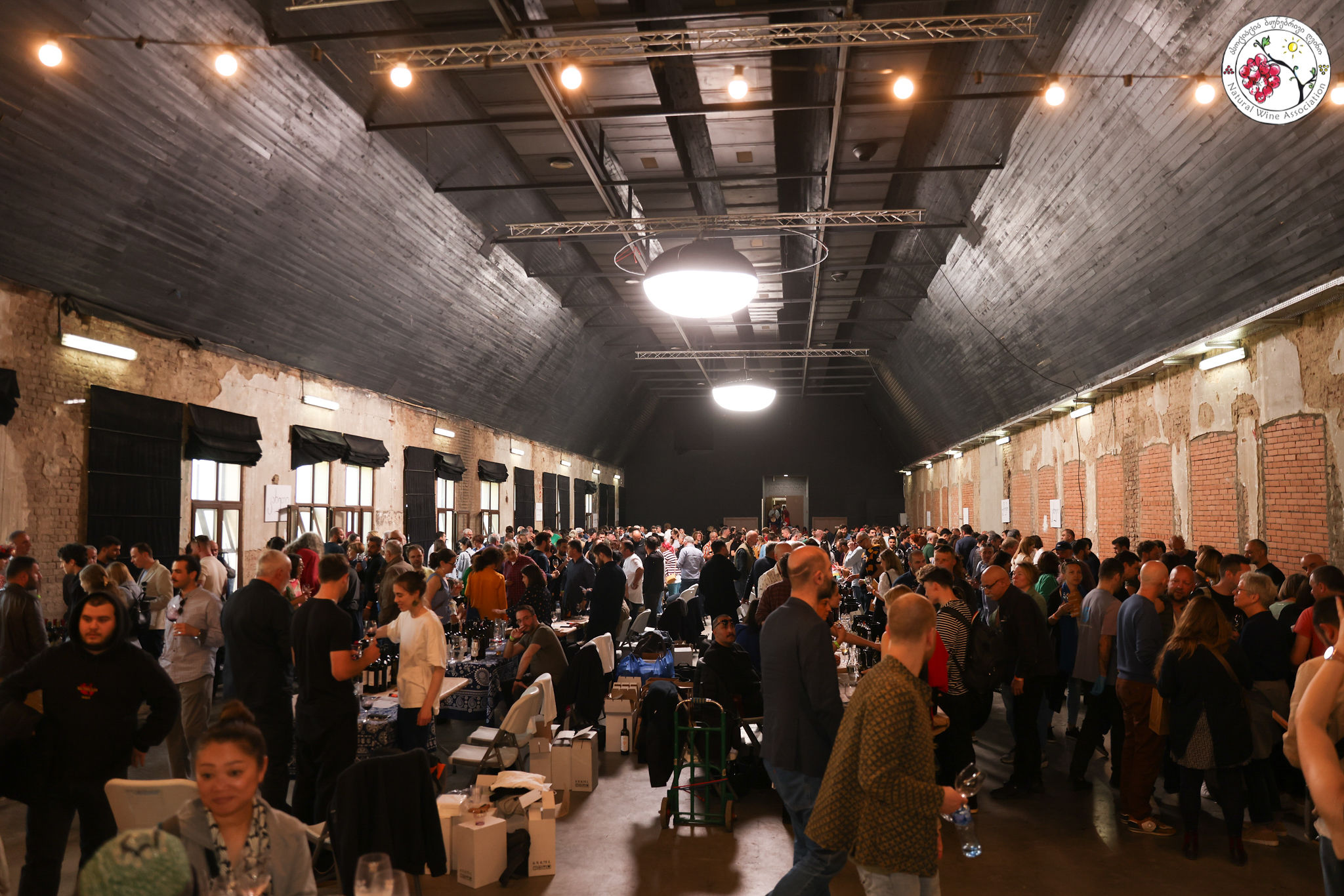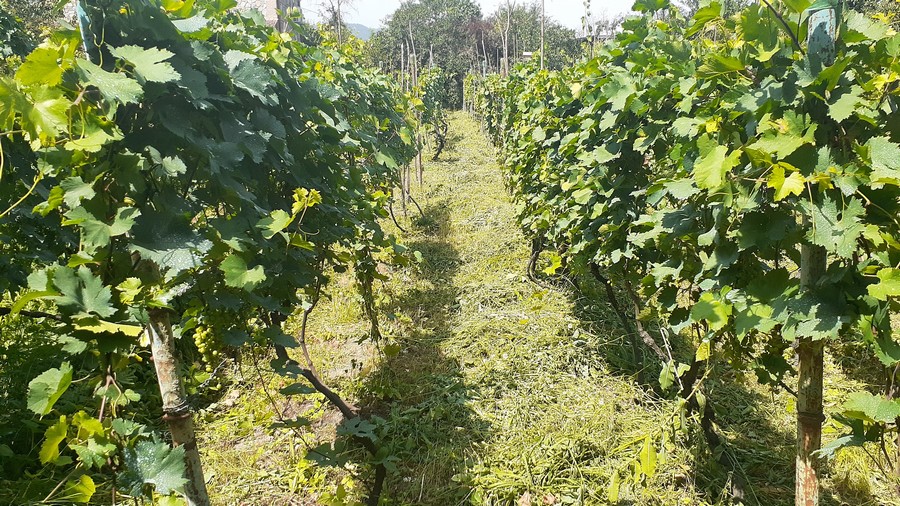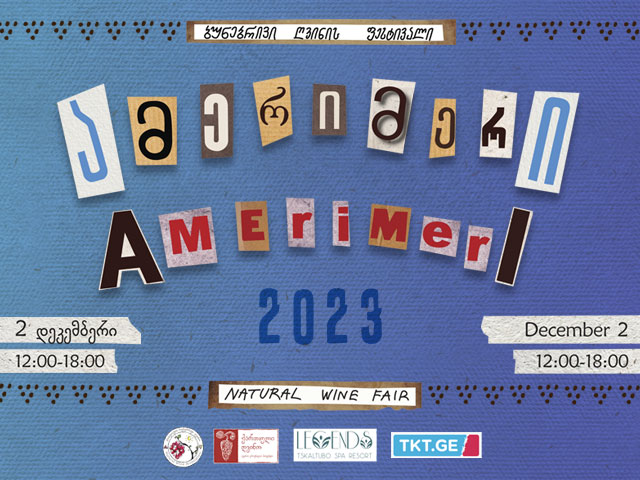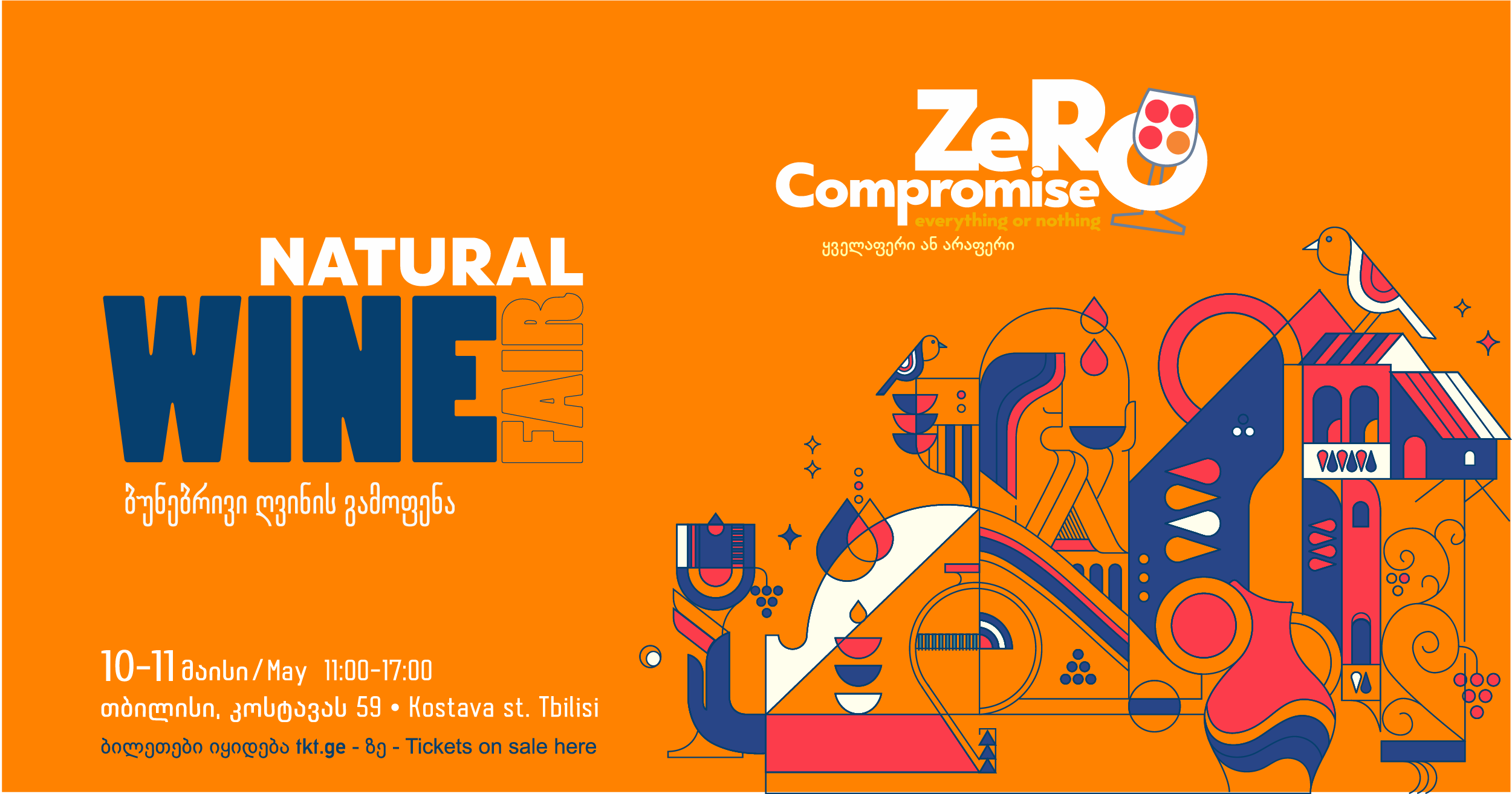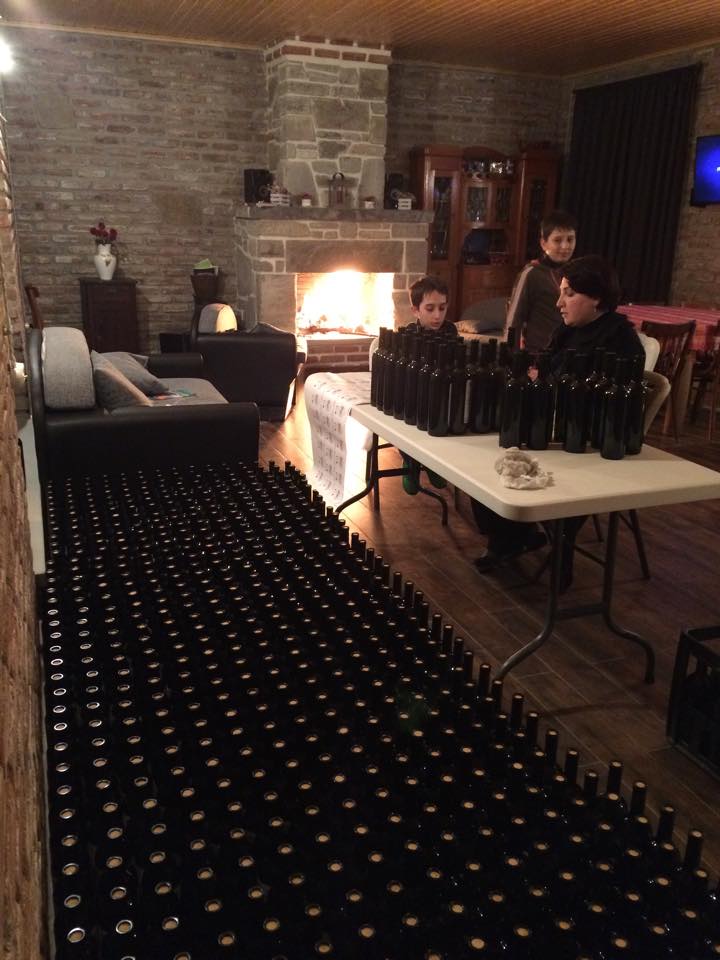News . 12-05-2022
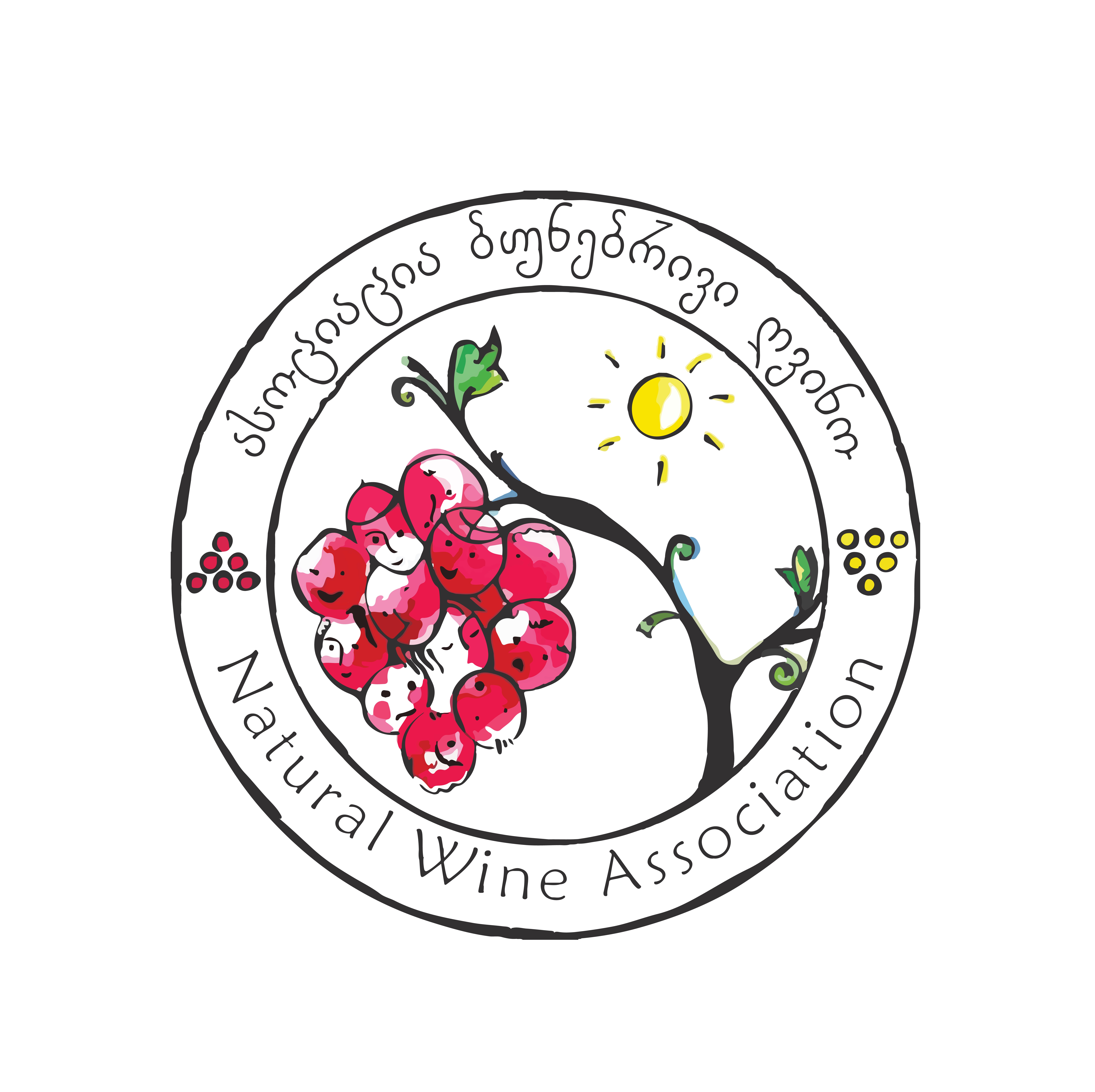
After a Two-Year Gap, 9 New Members Join the Association
The Natural Wine Association has welcomed nine new members who applied for admission in 2024. Since that year, the process of joining the Association has become significantly more demanding. In addition to stricter criteria and requirements, candidates must now undergo an initial two-year inspection period.
These changes were introduced in response to recent challenges, as natural wine gained popularity in Georgia and the number of small wineries applying for membership increased. The trend revealed that many applicants did not fully meet the Association’s standards. By introducing additional requirements and a two-year inspection, the Association ensures greater transparency and provides near-complete reliability regarding the quality and authenticity of its new members.
New wineries are admitted to the Natural Wine Association based on formal applications submitted by candidate wineries. Once applications are received, the Association’s inspection team reviews the submitted documents and selects those wineries that meet the Association’s requirements. The team then conducts on-site inspections of the candidate vineyards and wineries.
After signing a preliminary agreement with the Association, each candidate is required to maintain detailed vineyard records. These must include information about all vineyard work —such as pruning, cultivation, harvesting, spraying, and other treatments — as well as the substances and dosages used.
Following a two-year inspection period, the Association’s founders review the inspectors’ reports on each candidate winery. Based on these findings, the Founders’ Meeting makes the final decision on whether to grant membership. If the decision is positive, a formal membership agreement is signed with the candidate.
By decision of the Founders, nine new members have joined the Association since 2025. Meanwhile, six wineries that did not meet the requirements were either denied membership or withdrew their applications after interviews with the inspection team.
Nwa.ge introduces the new members of the Association:
Petriaant Marani - Located in the village of Zemo Khodasheni in Akhmeta Municipality, The Winery cultivates Rkatsiteli, Saperavi, Kisi, Khikhvi, and Mtsvane. The wines are primarily produced in qvevri, following Georgia’s ancient winemaking tradition. The owner, Rezo Petriashvili, is recognized as one of the country’s first organic winegrowers and a pioneer natural winemaker. Since 2009–2010, he has been presenting his wines at various festivals. The winery also participates in hospitality tourism, and its signboard is proudly displayed along the Wine Road route.
Papa’s Marani - Also based in Akhmeta Municipality, it is owned by Giorgi Papunashvili, who cultivates Kisi, Saperavi, Rkatsiteli, and Mtsvane Kakhuri in the village of Ozhio. The winery’s cellar, located in the same village, has been almost entirely rebuilt and renovated over the past two years. Giorgi primarily produces wine using the traditional Kakhetian qvevri method, but in recent years he has also begun crafting pet-nats.
Rero Marani - Located in the village of Puti in Zestaponi Municipality, Imereti, Rero winery belongs to the family of Irakli and Giorgi Siradze. The vineyards are primarily tended by their father, an experienced winegrower. The cellar itself is built in the family’s yard. Rero produces both dry Imeretian wines and pet-nats. Their main grape varieties include Tsitska, Tsolikouri, Krakhuna, and Otskhanuri Sapere. In addition, they maintain a small collective vineyard with rare varieties such as Rko Shavi, Dondghlabi, Adanasuri, Dzelshavi, Kundza, Shavi Krakhuna, and others.
Kokhta Marani - Founded in 2021 by friends Giorgi Nachkebia, Revaz Pruidze, Aleko Aleksishvili, and Avtandil Jibladze, Kokhta Marani draws heavily on family winemaking traditions. A major influence was the experience of Revaz Pruidze’s father, Irakli Pruidze, co-founder of Our Wine together with Soliko Tsaishvili, a pioneer of natural winemaking in Georgia. The vineyards of Kokhta Marani are located near the Our Wine cellar, in one of the well-known areas (Chortauli) of the village of Bakurtsikhe. Kokhta Marani wines are available in Tbilisi wine bars, with Rkatsiteli being their primary variety, fermented in qvevri.
Nikoladze Winery - The Association has added another member from the village of Nakhshirgele in Terjola Municipality: Nikoladze Winery. This is also the site of the cellar and vineyards of the Association’s founder, Ramaz Nikoladze. The winery itself belongs to Giorgi Nikoladze, who cultivates Tsitska, Tsolikouri, and Otskhanuri Sapere. He produces wine both in qvevri and in stainless steel vessels. The cellar is well-equipped, open to tourists, and the family plans to expand into hospitality by converting their large two-story house into a family hotel.
Milorauli - Milorauli is owned by Sandro Milorava and his family. Their bio-certified vineyard is located in the village of Zemo Khodasheni in Akhmeta Municipality, while the wine cellar itself is in the city of Telavi. A small family hotel also operates on the cellar grounds. The Milorava family cultivates both Georgian and international grape varieties, including Kakhuri Mtsvane, Kisi, Khikhvi, Saperavi, Alexandrouli, Syrah, Montepulciano, Tempranillo, and others. They have been producing wine since 2015.
Ugly Fellas’ Wine - Founded by Sandro Adamia, Irakli Evdoshvili, and Giorgi Rajebashvili, Ugly Fellas’ Wine is based in the village of Kvemo Khodasheni in Telavi. Ornithologist-turned-winemaker Giorgi Rajebashvili named his Rkatsiteli “Bicho Gogia” (“Little Bird Gogia”) and illustrated the bird on the label. Their vineyard in Kvemo Khodasheni is planted with Rkatsiteli, Mtsvane Kakhuri, and Kisi.
Likokeli Marani - Located in the village of Ruispiri in Telavi Municipality, Likokeli winery is managed by Giorgi Likokeli, who cultivates Rkatsiteli, Mtsvane Kakhuri, and Saperavi. This year, the new harvest will be pressed in a newly built wine cellar. The Likokeli family primarily uses qvevri, producing wine according to traditional Kakhetian methods.
Gigaura - Gigaura, the wine cellar of Giorgi Gigauri, is located in Kartli, specifically in the Berbuki settlement near the city of Gori. The family maintains its main vineyard adjacent to the cellar and also owns another vineyard in the village of Khidistavi in Gori Municipality. Their cultivated varieties include Shavkapito, Goruli Mtsvane, and Chinuri.
Levan Sebiskveradze
